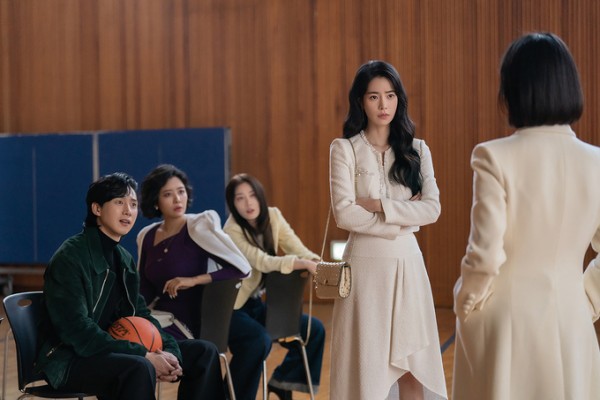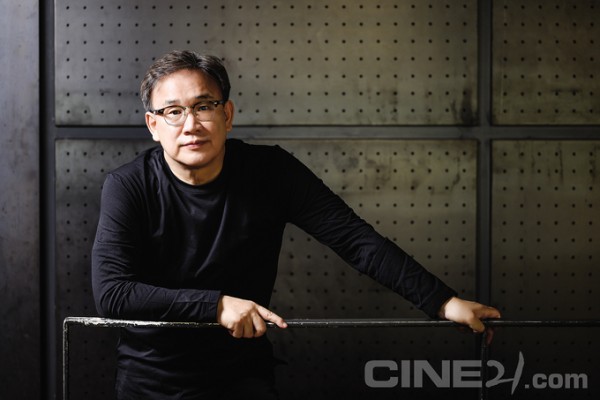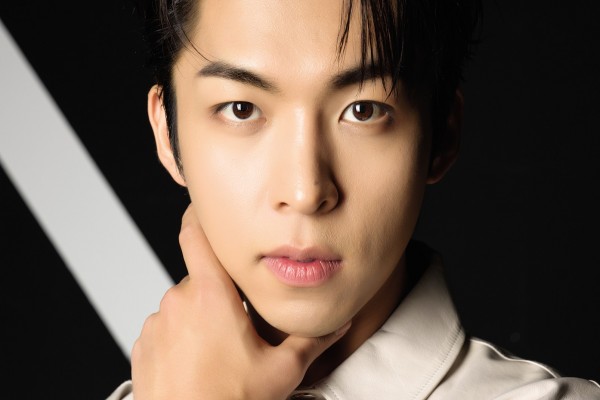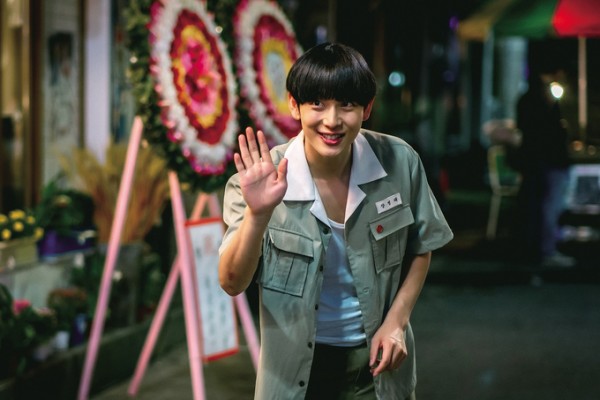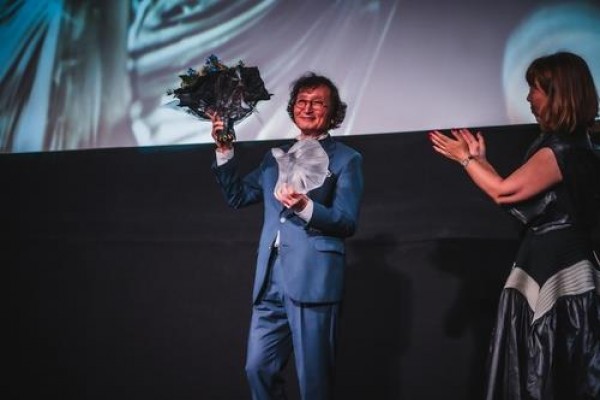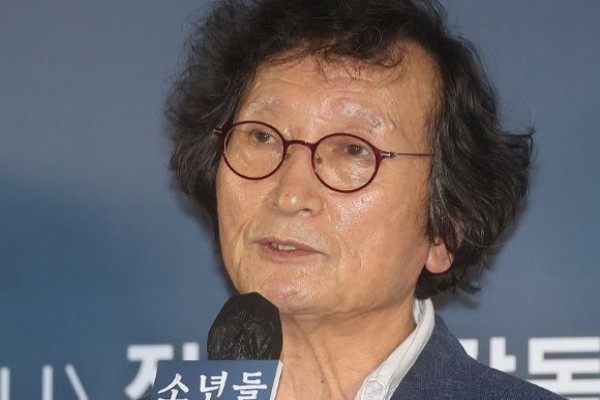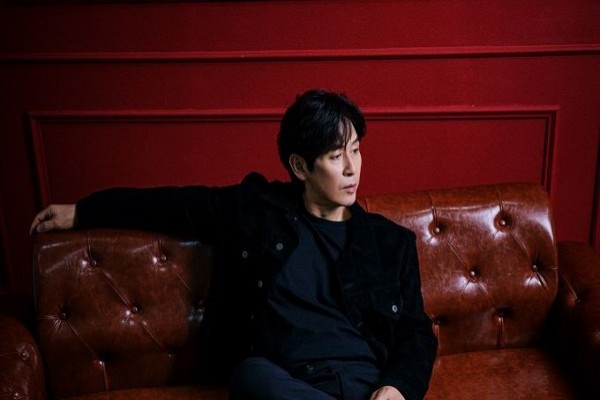130, Suyeonggangbyeon-daero,
Haeundae-gu, Busan, Republic of Korea,
48058
BLACK MONEY Director CHUNG Ji-young
Dec 02, 2019
- Writerby KIM Su-bin
- View2307
“I wanted to show the true nature of financial capitalism.”
CHUNG Ji-young mainly stood over the last few years in a position where he was much in demand. Having produced documentaries with a strong sense of timeliness and named director of film events such as the Bucheon International Fantastic Film Festival (BIFAN) and the Saram Film Festival, CHUNG had brought vitality into the film industry. After 7 years in production, BLACK MONEY, which deals with a true story of financial crime, marks CHUNG’s return as director. This movie adds the typical appeal of a genre film to a keen and rigorous observation of society leaders. We met with CHUNG Ji-young, freshly back in the director’s chair, ahead of the release of his delightful new film.
It was revealed during the press screenings that this film has been in the works since 2012, which means it took 7 years to come to theaters.
The screenwriting process wasn’t easy. It was as difficult, massive and complex as economical stories could be. I did study a lot, out of the necessity to deliver the story to the viewers in an easy and entertaining way. We ended up with dozens of versions of the same scenario. Since we kept revising and revising it again, it took a lot of time.
In January 2012, it was decided to finally dispose of Korea Exchange Bank (now merged with Hana Financial Group). Could it be that it is this decisive event that was the motivation for making this film?
Yes. Before that, I only knew Lone Star as the private equity fund that bought Korea Exchange Bank at a bargain price and then tried to sell it off. Since it is a complex story about economics, it was tough to get a handle of the case. And so, while I was listening to that story with only half an ear, there is someone who sought to establish the truth in that case. His name is YANG GI-HWAN, and he is the CEO of Jilarabi, which co-produced the film. This friend of mine suggested we make a film out of it. I listened carefully to his arguments, and it seemed to me that despite the difficulties we needed only to resolve them well enough and it would make for an interesting movie.
He is someone who is always on the same wavelength with me. With only a few words, he already knew everything about the story and put it in order. He is well aware that you cannot please people with lines or plots written by two people. That’s why we constantly shared drafts with others to get feedback. In light of these comments, we revised and revised again the script. It took us 6 years just to come up with a final version of the script. Getting BLACK MONEY to a point where it would be easily understood by the audience was my main objective. That’s why I had no choice but to use the techniques that genre movies use. I was worried because people around me had concerns, but people from the audience said upon watching the completed film that it was surprisingly fun and not difficult at all.
It seems like it was difficult and important for you to make a clear distinction between this film and other films dealing with corruption in the financial or judicial world.
As far as I know, this is the first film to properly raise the question about the problems with financial capitalism in the Republic of Korea. There is, of course, Default (2018), but that movie dealt with the events that led to the 1997 IMF bailout and the way we coped with it. In comparison, this movie tries to dive into the true nature of financial capitalism. It aims to reveal the problem of it having the potential to affect us in such a big way. I think this is the first film to deal with that problem.
The role of international trade specialist Kim Na-ri, interpreted by LEE Ha-nee, is unusual in that she is a female character with complex ambitions. Could you please tell us more about the creation process for this character?
Could it be that this character changed that much during the six years of screenwriting? We had set up these two main characters, Yang Min-hyeok and Kim Na-ri, and then tried different things. We basically settled on Prosecutor Yang Min-hyeok being a hot-tempered and passionate man and Kim Na-ri being a level-headed cold woman. They run into each other and create some sort of “chemistry” against all odds. People who watched the film found the character of Kim Na-ri interesting.

How was it to be back on a film set after all that time?
It’s always a pleasure being on set. It’s easy for me to compromise. When something doesn’t look like what I had in mind, at some point I recognize it is the best we could do and I’m satisfied with it. Those who cannot find satisfaction in that keep going for 100 more takes. As for me, I think this is foolish. Doing like that doesn’t produce the result you want. Not being a perfectionist is the best way to make film production enjoyable.
A lot of high-profile supporting actors can be seen in the movie. There is a certain appeal in watching an ensemble cast of supporting actors playing together.
I think that if there is one thing Korea doesn’t lack, it’s the actors. This is a valuable asset to have when it comes to reaching a certain level of quality with your film. In the 1980s, it was tough to find actors. It was difficult to make a movie if AHN Sung-ki was already filming another one. (laughs) Now, there is plenty of good performers. I first received recommendations from people around me, I then gathered the movies in which they had credits, and eventually set up interviews and cast them.
What was the response of the directors who, like you, have been active since the 1980s?
They told me the film was interesting and well made. One of them told me it would be nice if the film does well and gives us more opportunities. I have a similar wish. It would be great if it performs well at the box office. Investors are reticent to back film directors who are putting on years, as they assume they must have outdated sensibilities, so couldn’t they get more opportunities if the film is a commercial success?
What kind of stories or subjects usually attract you?
There are so many. I mostly like to pick up something to think about among all the events that have been covered up, whose true meaning have been incorrectly reported, or that we don’t know and don’t stop to think about despite the considerable influence it has on our lives. I bring up these cases and reflect on their meaning. I like to ask questions such as what meaning these events have, historically speaking.














